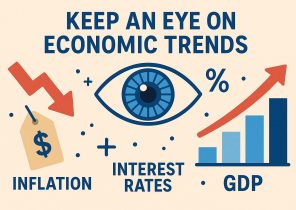Investing in Yourself: A Pathway to Enhanced Earning Potential
Investing in oneself, particularly in acquiring knowledge and skills, is often regarded as the most valuable investment one can make. These investments yield returns through increased earning potential and career advancement over time. Understanding how to strategically enhance your skills and knowledge can effectively lead to greater financial and professional success.
The Importance of Continuous Learning
In today’s rapidly evolving job market, skills and knowledge can quickly become outdated. This makes continuous learning essential. By committing to lifelong education—whether it be through formal education, online courses, or self-directed learning—you ensure your skills stay relevant and valuable to employers and clients.
Formal Education and Degrees
Pursuing further formal education, such as advanced degrees or additional certifications, can provide significant advantages. Not only do these qualifications often result in higher salaries, but they also open up new career opportunities. Additionally, many professions require continuous education credits to maintain certification. This ensures professionals remain at the forefront of their fields and abreast of the latest industry trends and developments.
The structured environment of formal education encourages deep dives into specific fields, allowing individuals to develop comprehensive expertise. Institutions often connect students with like-minded peers and mentors, providing invaluable opportunities for collaboration and guidance. Beyond immediate career implications, the process of obtaining degrees or certifications also instills a sense of discipline and commitment that can enhance one’s overall professional reputation.
Online Courses and Workshops
The rise of the internet has made acquiring new skills more accessible than ever before. Online platforms like Coursera, Udemy, and LinkedIn Learning offer a wide array of courses covering everything from technical skills to soft skills essential in any job. These courses can often be completed at your own pace, making them a flexible option for busy professionals. This flexibility allows individuals to tailor their learning experiences to their specific needs and schedules.
Online courses and workshops also provide access to a global network of professionals and educators. This exposure can be particularly beneficial in diverse fields such as technology, marketing, and entrepreneurship, where global trends and collaborative knowledge are invaluable. The ability to learn from industry leaders and gain insights into global best practices helps enrich professional perspectives.
Developing Soft Skills
While technical skills are crucial, soft skills are equally important in enhancing your value in the workplace. Skills such as communication, teamwork, and problem-solving are highly sought after by employers. According to various reports, strong interpersonal skills can significantly impact one’s career trajectory and earning potential.
Developing these skills demands ongoing practice and mindfulness. Activities such as participating in team projects, public speaking, and active listening exercises can help strengthen these essential competencies. Organizations often emphasize the importance of emotional intelligence, which is integral to effectively navigating today’s collaborative and dynamic work environments.
Networking
In addition to formal education and skills training, networking plays a crucial role in professional growth. Building a strong professional network can lead to job opportunities, partnerships, and collaborations. Attending industry conferences, joining professional associations, and engaging with peers on platforms like LinkedIn can be excellent ways to expand your network.
Networking is not just about forming connections but also about maintaining and nurturing them over time. Building genuine relationships with colleagues, mentors, and industry professionals can provide ongoing support and guidance. Events and forums provide platforms for sharing ideas, gaining feedback, and even collaborating on projects, all of which enhance reputation and visibility in a particular field.
Time Management and Productivity
Effective time management and productivity-enhancing strategies are invaluable skills that can have a direct impact on your work performance and career advancement. Techniques such as the Pomodoro Technique, prioritized task lists, and regular goal setting can help maximize productivity. Being disciplined with time not only increases efficiency but also enhances work-life balance, leading to reduced stress and better overall job satisfaction.
Employing time management techniques can also facilitate more efficient multi-tasking and problem-solving, vital in high-demand job roles. By structuring work schedules and breaking down tasks into manageable portions, professionals can maintain high standards of work without burnout. This aptitude for balancing various responsibilities is often recognized and rewarded by employers.
The Financial Returns of Investing in Yourself
Perhaps the most compelling reason to invest in your skills and knowledge is the financial return. Statistics show a positive correlation between higher educational attainment and increased earnings. Additionally, those who invest in broadening their skill set are often better equipped to adapt to job market changes, increasing job security and satisfaction.
Investing in oneself predominantly manifests in higher salaries over time as new skills and qualifications are obtained. Professionals who continually seek to expand their skills and knowledge often find themselves more competitive and attractive in their fields. This adaptability can lead to more stable and satisfying career paths, with individuals poised to capitalize on emerging opportunities.
Moreover, enhanced skills can pave the way for leadership roles and specialized positions, often accompanied by financial incentives such as bonuses, share options, or commissions. Such roles typically require a strategic outlook and decision-making skills, acquired through continued self-investment.
Conclusion
In summary, investing in yourself by acquiring new skills and knowledge is a strategic path to boosting your earning potential and achieving career growth. Whether through further education, skill development courses, or networking, the time and resources dedicated to personal and professional development can deliver substantial long-term benefits. In an ever-evolving job landscape, the preparedness and adaptability gained from such investments are invaluable, equipping individuals to navigate and excel in their chosen career paths.
This article was last updated on: October 9, 2025








